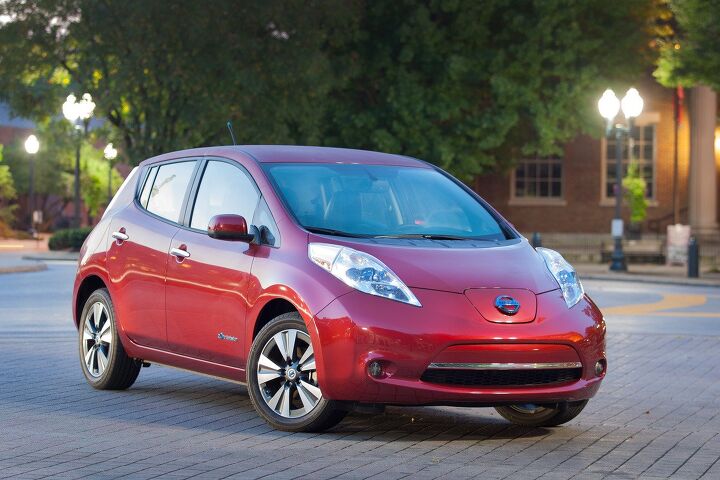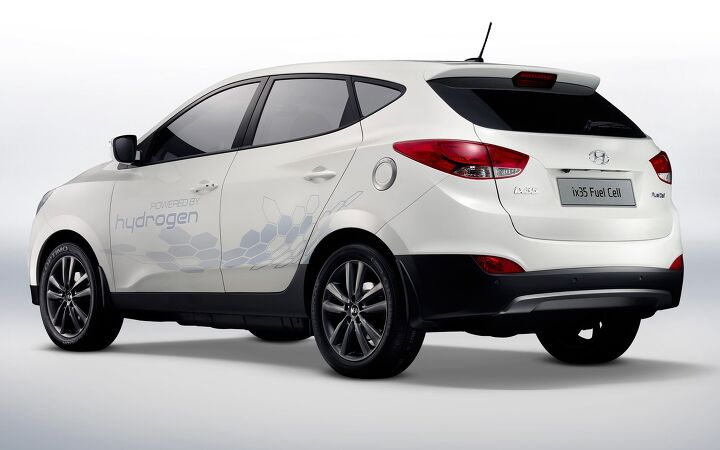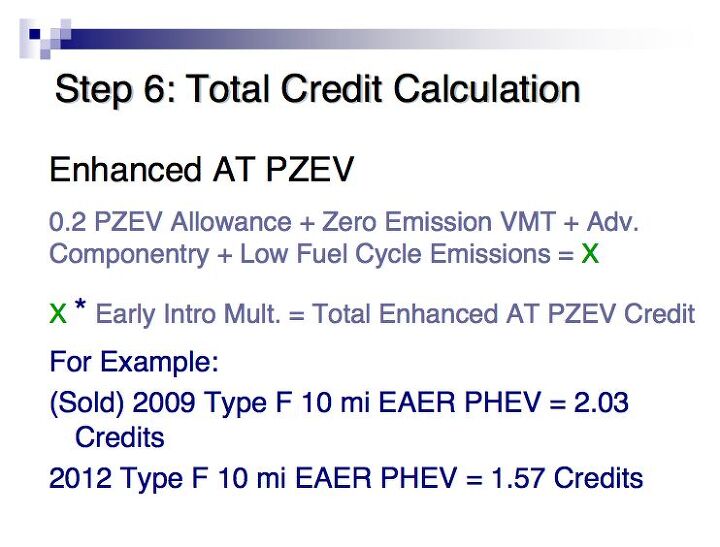#ZEVCredits
GM to Take a $9,000 Hit on Every Chevy Bolt Sold; Its SUVs Give Thanks
To play the game, you’ve got to be prepared to kiss off a few bucks.
That’s what General Motors will do with every Chevrolet Bolt that rolls off its Michigan assembly line, but it’s not because the automaker suddenly felt like becoming a masochist.
Tesla Battery Swap Pilot Status Tied To California ZEV Credits
Tesla’s battery swap pilot program in Harris Ranch, Calif. may never leave the pilot phase, thanks to how California handles ZEV credits.
Nissan, Tesla Sold Most California ZEV Credits In 2013
In one corner of the California ZEV credit octagon, the Tesla and its air of luxury. On the other side, the Nissan and its down-to-earth vibe.
Who won this year? Nissan.
Hyundai Gathers Tucson ZEV Credits For Future Internal, External Swaps
While the first hydrogen-powered Tucson FCVs left the docks in California in the last week of May, Hyundai knows the vehicles aren’t meant to add to the company’s bottom line, but are meant to garner credits for future use.
CARB ZEV Credit Restructuring Leaves Tesla With Fewer Credits
A change to the California Air Resources Board’s Zero-Emission Vehicle credit program will leave Tesla with four credits per car cold for the foreseeable future, down from seven credits for every Model S through 2013.
Tesla Leads Sellers of CARB ZEV Credits, Chrysler Biggest Buyer
According to data released by the California Air Resources Board, CARB, Tesla Motors was the top seller of the zero-emission vehicle credits that regulatory board requires car makers to have if they want to sell cars in that state. Toyota was the top seller of hybrid-car credits.
Tesla sold 1,311.52 ZEV credits from Oct. 1, 2012, through Sept. 30 this year. Suzuki Motor Corp., the next biggest seller, transferred about 41 credits. Though Suzuki no longer sells cars in the United States, they still have credits accumulated from prior sales. Toyota transferred 507.5 plug in zero emission vehicle credits generated by its Prius hybrid. General Motors Co. acquired the same number as Toyota sold, so presumably GM bought them from its Japanese rival.
Nissan to Start Selling California ZEV Credits, Joining Tesla
Tesla recently released financial figures that the company says demonstrate profitability. According to Automotive News, analysts have pointed out that some of Tesla’s revenue comes not from selling cars but rather by selling zero-emission credits to other car companies that want to do business under California’s clean-air regulations. If they want to sell cars in California, companies have to comply by either producing ZEVs or by obtaining credits from companies that make those vehicles. Now Nissan Motor Co, whose Leaf is the best selling electric car of all time, has joined Tesla in selling those credits. Tesla was able to sell those credits because they only make electric vehicles. Makers of conventional cars and trucks buy the credits to theoretically offset the pollution caused by those cars. Since Tesla has no such conventionally polluting cars to offset, they can sell their credits. Nissan executive VP Andy Palmer told reporters earlier this week that at this point Nissan has sold enough Leafs to cover its own needs to comply with the California Air Resources Board‘s rules and will now start selling surplus credits to other automakers. “We’ve got carbon credits to sell, and we’re selling them — California ZEV credits.” No details were forthcoming on time, price or to whom Nissan will sell their credits.






















Recent Comments